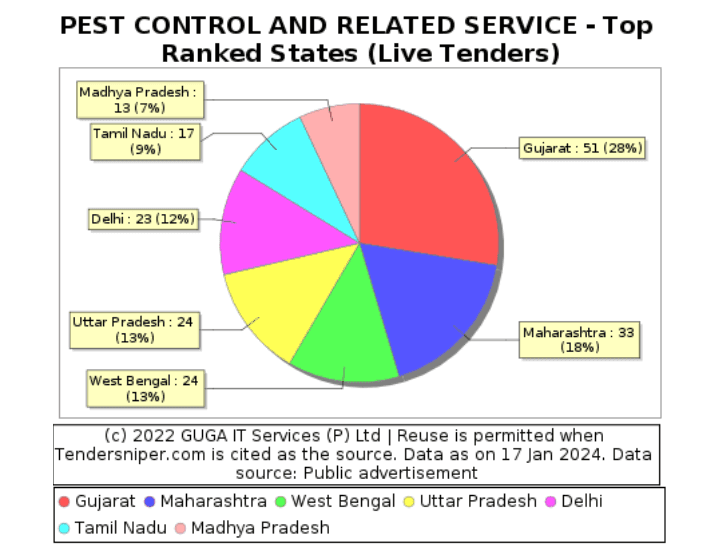Pest control encompasses the supervision and regulation of diverse pests, ranging from insects and rodents to birds and other undesirable organisms. The principal objective of pest control is to reduce or eliminate the adverse impact of pests on human activities, health, and the environment. Strategies for achieving this goal include measures to prevent pest entry, modify habitats, and employ pesticides or alternative control methods. The methods employed in pest control are diverse, incorporating chemical, biological, physical, and cultural controls. Chemical controls often entail the use of pesticides, while biological controls may involve introducing natural predators or parasites. Physical controls utilize traps and barriers, and cultural controls center on modifying practices to discourage the presence of pests.
Pest control, a versatile practice, finds extensive applications in agriculture, public health, food safety, forestry, and numerous other sectors. Its core objective is to proactively address and effectively manage challenges associated with pests, thereby preserving human health, safeguarding the environment, and ensuring the well-being of communities and industries. Diverse sectors actively procure pest control services to navigate and mitigate pest-related challenges. These sectors encompass agriculture, the food industry, healthcare facilities, the residential sector, commercial and industrial establishments, hospitality industries, educational institutions, public spaces, urban areas, government facilities, transportation and logistics, warehousing and storage, the forestry and timber industry, waste management facilities, and the pharmaceutical industry.
Government agencies and PSUs in India actively procure pest control services to fulfill their responsibility in protecting public health, maintaining essential infrastructure, ensuring compliance with regulations, and contributing to the overall welfare of communities and the environment. This analysis shows that a total of 4,854 pest control services tenders were advertised by 373 government agencies across different states. Notably, Gujarat led with 493 tenders, followed by Maharashtra with 304 tenders, and Uttar Pradesh with 230 tenders, establishing these states as key contributors in the procurement of such services.
Tenders for pest control services are publicly announced by various agencies to address diverse needs such as pest control, animal control, and rodent control. For instance, NCR in Bihar issued a tender for a 12-month maintenance contract encompassing services like rodent control, vector control (mosquitoes/insects), and bedbug control under the Pest and Animal Control category. Similarly, CSIR in Uttar Pradesh published a tender for a Pest and Animal Control Service maintenance contract. This contract involves pest and rodent control work at Chattar Manzil Campus to be conducted twice a month (totaling 24 treatments) and 12 treatments for general pests/insects control at CDRI Jankipuram Campus.
A total of 43 tenders related to post-construction pest control processes were issued. Post-construction pest control involves implementing pest management measures after the completion of a construction project. This method is specifically designed to prevent and address pest infestations in buildings and structures once they have been constructed. The objective is to establish an environment that is inhospitable to pests and to tackle any existing pest issues that may have emerged during or after the construction process. To achieve effective post-construction pest management, professional pest control services are commonly enlisted. For instance, the Haryana Government issued a tender for post-construction anti-termite treatment in the Girls Hostel at DLCSUPVA, Rohtak. Similarly, MGIMS in Maharashtra published a tender for an Annual Maintenance Contract covering Goldnix Service (General Pest Control Service), Rodent Control, Mosquito Repellent Spraying, Bedbug Services, and Terminix Service (Post-construction).
Healthcare facilities actively seek and acquire a significant number of tenders for pest control services, with a total of 50 tenders specifically published for hospitals. The role of pest control in healthcare settings is multifaceted, encompassing contributions to infection control, patient safety, regulatory compliance, preservation of medical supplies, prevention of structural damage, pharmaceutical storage, hygiene in kitchen and food service areas, emergency preparedness, positive patient experiences, employee well-being, and the overall public image of the healthcare facility. Regular and effective pest control measures are imperative for establishing a safe and hygienic environment conducive to patient healing and well-being. For example, the Office Chief District Medical Public Health in Odisha issued a tender for pest control services at a 400-bedded hospital. Similarly, PCMC in Maharashtra invited tenders from experienced agencies for pest control work in various PCMC hospitals and dispensaries.
A total of 250 tenders were issued for the procurement of anti-termite services. Anti-termite treatment tenders specifically targets termites, insects notorious for causing damage to wooden structures and other materials containing cellulose. The primary objective of anti-termite treatment is to prevent or eliminate termite infestations in buildings, furniture, and other structures. Termites can inflict substantial damage by feeding on wood, leading to structural issues and financial losses. Common methods include soil treatment with termiticides, baiting systems, and wood treatment using chemical formulations that either repel or eliminate termites. For example, BSIP in Uttar Pradesh issued a tender for an annual contract for anti-termite treatment in BSIP, Lucknow. Additionally, MES in Punjab invited a tender for anti-termite treatment for specific buildings under GE (N) Mamun.
In addition, there are solicitations for pest control services through tenders specifically focusing on Integrated Pest Management (IPM). Integrated Pest Management (IPM) is an approach to pest control that combines various methods to manage and control pests effectively while minimizing environmental impact and reducing the reliance on chemical pesticides. The key aspect of IPM is the integration of various control methods, rather than relying solely on chemical pesticides. This all-encompassing strategy strives to optimize the efficiency of pest management while minimizing both environmental and economic risks. IPM finds widespread application in agriculture, horticulture, and other environments prone to pests, promoting sustainable and eco-friendly pest control practices. As an illustration, the Karnataka Milk Federation (KMF) issued a tender for a biannual service contract related to Integrated Pest Management (IPM) at Dakshina Kannada milk union.
In addition to these, numerous tenders were released for related services such as cleaning, sanitation, and disinfection. For example, DOP in West Bengal issued a tender for Cleaning, Sanitation, and Disinfection Services covering offices, commercial spaces, institutions, and residences. The services include general cleaning tasks such as sweeping, mopping, and dusting for indoor and outdoor areas, as determined by the competent authority. Similarly, IA in Haryana published a tender for Outcome-Based Cleaning, Sanitation, and Disinfection Services specifically targeting public transport places. The scope of services includes vegetation cutting for outdoor areas.
As of January 17, 2024, there are currently 185 ongoing tenders for pest control and associated services in diverse states. Gujarat leads with 51 tenders, constituting 28% of the total. Following closely, Maharashtra has 33 tenders, while West Bengal and Uttar Pradesh each have 24 tenders. Delhi accounts for 23 tenders, Tamil Nadu has 17, and Madhya Pradesh has 13 tenders.
This study highlights that governmental agencies and Public Sector Undertakings (PSUs) engage in the procurement of both pest control and anti-termite treatment. This procurement serves the purpose of upholding the structural integrity of buildings, safeguarding crops, and ensuring the health and safety of living spaces. Professional pest control services play a crucial role in assessing specific pest issues and implementing tailored measures to address and prevent infestations. Moreover, there is a growing trend towards adopting integrated pest management (IPM) approaches, which entail the use of a combination of strategies for effective and sustainable pest control. In light of these considerations, it is advisable for professionals or firms offering pest control services to actively monitor and participate in relevant tender processes.







